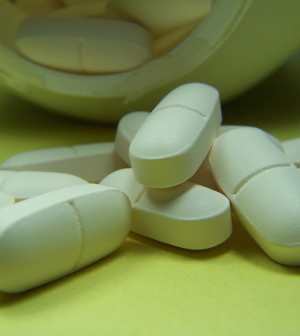- Could Your Grocery Store Meat Be Causing Recurring UTIs?
- Are You Making This Expensive Thermostat Error This Winter?
- Recognizing the Signs of Hypothyroidism
- 10 Strategies to Overcome Insomnia
- Could Artificial Sweeteners Be Aging the Brain Faster?
- Techniques for Soothing Your Nervous System
- Does the Water in Your House Smell Funny? Here’s Why
- Can a Daily Dose of Apple Cider Vinegar Actually Aid Weight Loss?
- 6 Health Beverages That Can Actually Spike Your Blood Sugar
- Treatment Options for Social Anxiety Disorder
Head Off ‘Holiday Heart Syndrome’

Overindulging over the holidays can take a toll on the heart, according to experts at UT Southwestern Medical Center in Dallas.
Heavy drinking and eating too much, especially salty foods, can trigger atrial fibrillation. A-fib is an irregular heartbeat that causes the upper chambers of the heart to contract rapidly, increasing the risk for stroke.
People with the condition may feel short of breath, have heart palpitations and feel like their heart is beating much faster than usual.
During December when holiday revelry peaks, emergency rooms see a surge of patients with what’s unofficially dubbed “holiday heart syndrome” from too much food and drink, according to UT Southwestern cardiologist Dr. Sharon Reimold.
“It’s common for people to go to multiple parties during this time of year. You go to one party and have a drink or two, go to the next party and have a couple more. It’s the cumulative effect of alcohol that can put you at risk, sending your heart into atrial fibrillation,” Reimhold said in a hospital news release.
Healthy adults should get no more than 1,500 milligrams of sodium a day, according to the American Heart Association. That’s less than a teaspoonful. Reimhold said it’s important to watch what you’re eating and drinking at holiday celebrations and avoid overdoing it.
More information
The American Heart Association provides more information on holiday heart syndrome.
Source: HealthDay
Copyright © 2026 HealthDay. All rights reserved.










